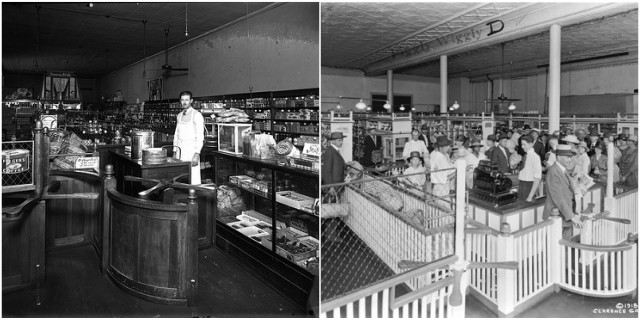Clarence Saunders was the founder of the Piggly Wiggly grocery stores. He opened the first store in 1916 in Memphis, Tennessee and expanded the business into 1,300 stores by 1923. By opening the first self-service grocery store, Saunders changed the way we buy groceries today.
Before Piggly Wiggly was opened, customers were not allowed to select the products by themselves. They headed to the counter and told the clerks what they needed. Then, the clerk would gather the products from the shelves and give them to the customer.
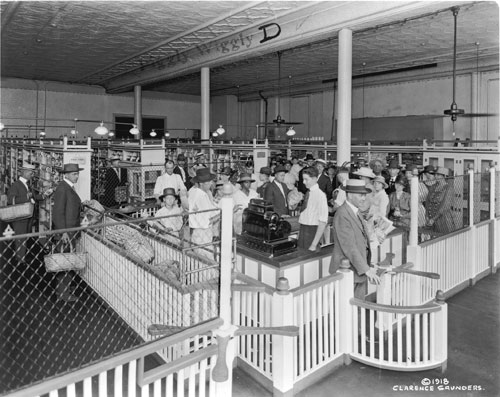
This way of selling products had some disadvantages. The prices of the products were not clear and in that way clerks would often charge customers more than they should.
People waited in long lines because the clerks needed more time to serve the customers. Saunders thought that there must be another way in which he could make this process faster and easier for the customers and for the retailers. That is how he came out with the idea of self-service grocery.
Weeks before the grand opening of the first Piggly Wiggly self-service store, people could read many advertisements in the newspapers and see billboards about the new grocery store that was about to change the shopping forever.
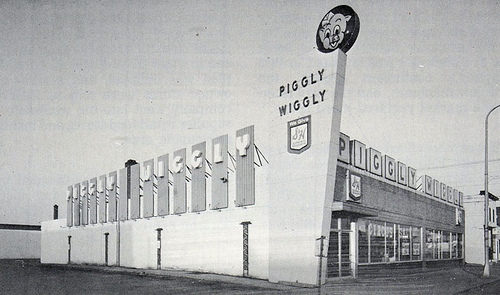
On September 6, 1916, many people came out for the opening of a new grocery store at 79 Jefferson Avenue in Memphis, Tennessee. It stocked more than 1,000 products, which was four times more than a typical market.
Inside the store, customers were free to walk through the aisles, check out the merchandise, and pick the products by themselves. Instead of ordering sugar or flour by weight, to be measured by the clerk, they found pre-bagged sugar and flour in neat stacks. Refrigerator cases were used in order to keep some products like milk and butter fresher. Tags were hung above every product showing the prices clearly and the customers could compare the prices of different brands.
Piggly Wiggly offered lower prices which reflected just a 14 percent margin above the manufacturers’ costs.
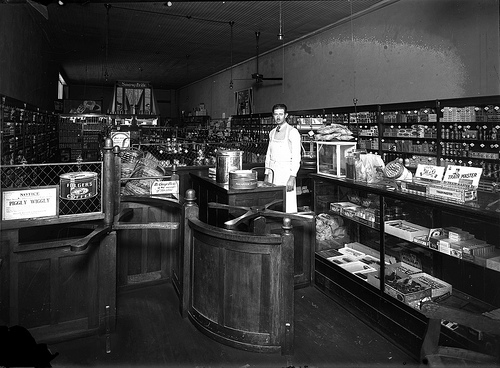
Also, Piggly Wiggly were the first to introduce uniformed employees, shopping baskets, turnstiles, and printed receipts. After selecting their goods, shoppers went to the counter where they received a printed receipt after paying.
Besides Clarence’s strong believe that this method will be successful and many people would follow the rules, other retailers ridiculed the self-service and thought it was a joke. This model was confusing for some customers as they couldn’t easily find the products they were searching for. However, most of the shoppers were happy to do the work of shopping.
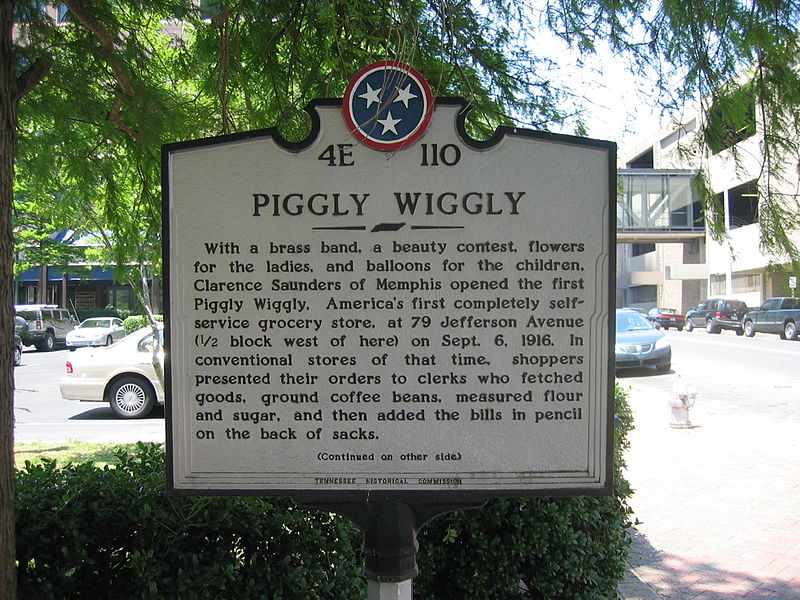
Saunders expanded his business and by 1932, there were more than 1,200 Piggly Wiggly stores across America, but his ride could not go any further than 1932 when Saunders was forced out of the company in a battle with Wall Street investors.
However, Piggly Wiggly will be remembered as the first true self-service grocery which paved the way for the modern supermarket.
